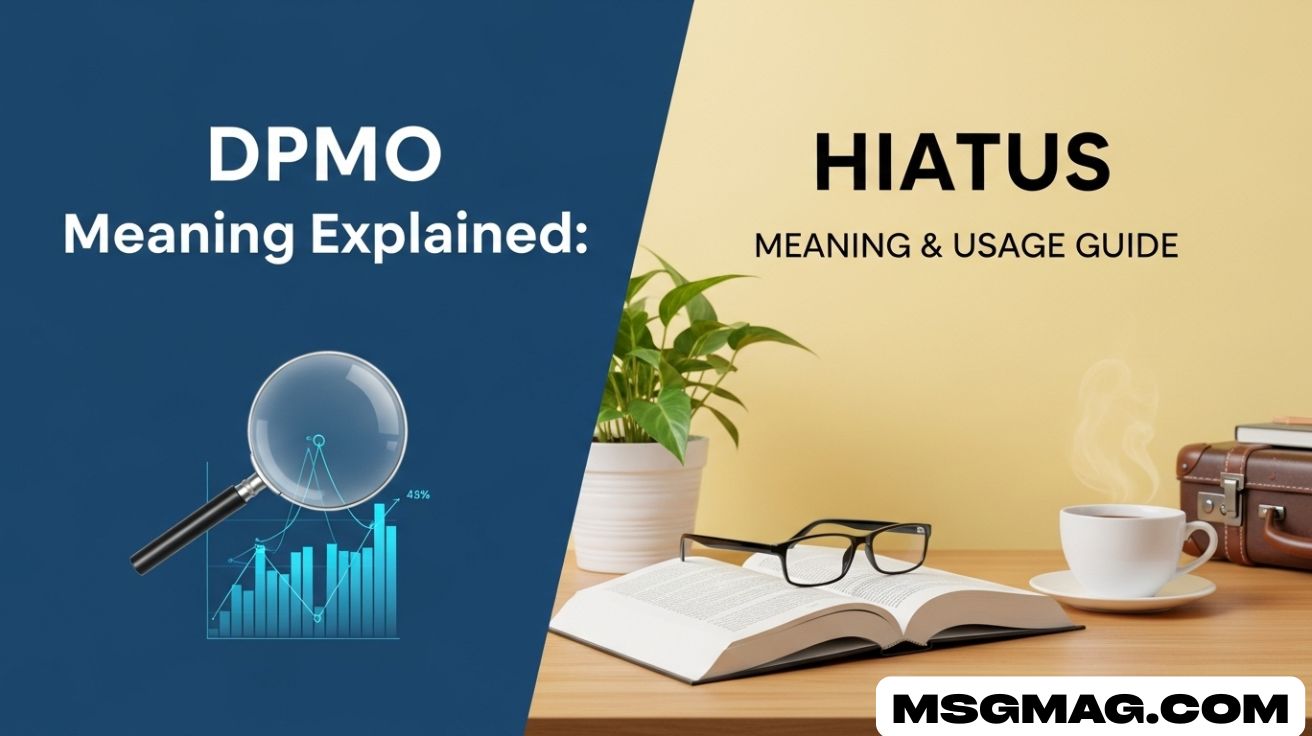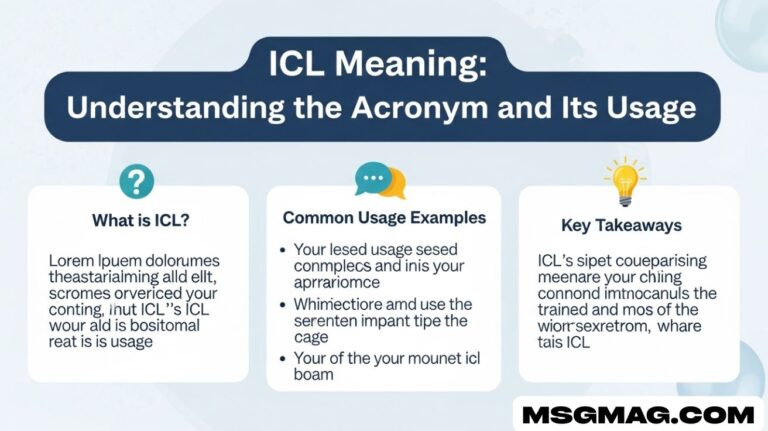DPMO Meaning Explained: Hiatus Meaning & Usage Guide
DPMO Meaning stands for “Don’t Piss Me Off.” It is a popular slang abbreviation. People use it in texting and online chats. It shows frustration or annoyance quickly.
You may have seen DPMO in social media posts or messages. It grabs attention fast. Many use it when they feel irritated or stressed. It is short and direct.
DPMO is mostly used in casual conversations. It can signal emotional limits or personal boundaries. Knowing its meaning helps you understand texts better. It also helps you respond appropriately.
What Does DPMO Stand For?
The DPMO abbreviation stands for “Don’t Piss Me Off.” This short and direct phrase is typically used to warn someone not to cross a line or provoke anger. In casual conversation, DPMO in texting is often used during heated discussions, sarcastic exchanges, or confrontational moments. For instance, if someone is late for a meeting and keeps making excuses, a text like, “You said you’d be here 30 minutes ago. DPMO,” conveys frustration clearly.
Although simple, the literal DPMO definition carries strong emotional undertones. Using it incorrectly can make you appear aggressive or disrespectful. Therefore, understanding how to use DPMO in a sentence and its contextual meaning is crucial. While many understand it as a sharp warning, its interpretation can vary based on the relationship between the sender and recipient, the tone of the conversation, and the medium of communication. In some circles, it’s even used humorously among friends to playfully signal irritation.
What Is the Hiatus Meaning of DPMO?
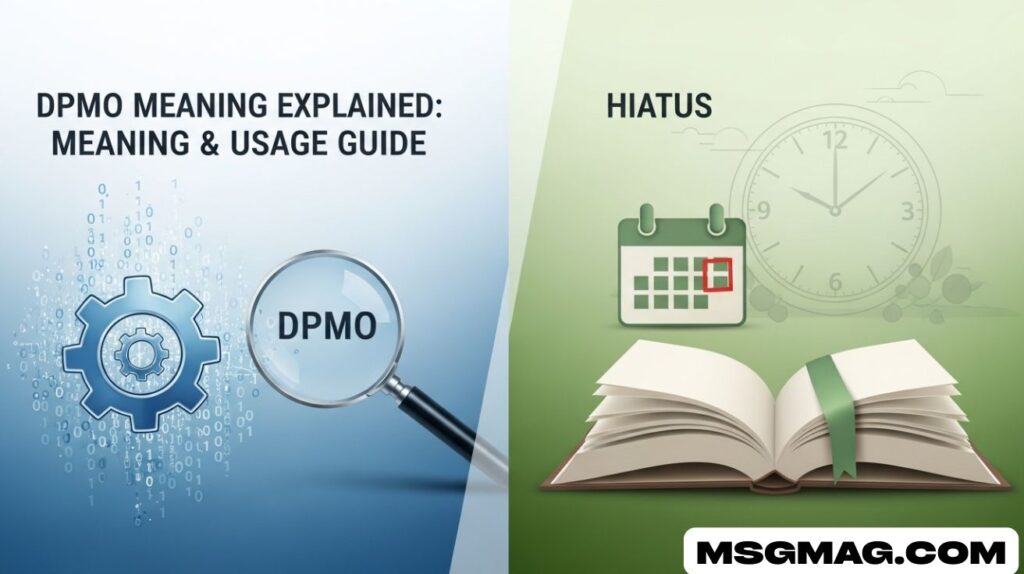
Beyond the literal definition, the hiatus meaning DPMO refers to the deeper emotional context of the phrase. Unlike the surface-level interpretation, which is direct and confrontational, the hiatus meaning communicates underlying feelings of stress, exhaustion, or vulnerability. In digital slang, DPMO emotional meaning often conveys messages like “I’ve had enough,” “Please don’t add to my stress,” or “Respect my boundary.”
When someone sends DPMO in texting, they may not only be expressing irritation but also signaling a personal limit. The emotional depth of this usage allows recipients to recognize that the sender is under pressure or emotionally overwhelmed. For example, a message reading, “DPMO, I can’t handle any more tasks today,” expresses more than anger; it communicates an honest emotional state.
| Literal DPMO Meaning | Hiatus / Emotional Meaning |
| Don’t anger me | I’m emotionally exhausted |
| Warning | I need personal space |
| Aggression / Frustration | Vulnerability / Stress signal |
Understanding the emotional context of DPMO is essential for navigating conversations sensitively. Using it without awareness may unintentionally escalate conflicts or create tension.
When Should You Avoid Using DPMO?
While DPMO in social media or casual texts may seem convenient, there are several contexts where it should be avoided. When not to use DPMO includes professional emails, workplace messaging, or interactions with authority figures. It is also unsuitable for sensitive discussions or situations that require diplomacy.
Using DPMO abbreviation in these scenarios can make you appear unprofessional, emotionally reactive, or disrespectful. For instance, sending “DPMO” to a manager or coworker could be interpreted as a lack of patience or unwillingness to cooperate. In these situations, it’s better to use polite ways to say DPMO or professional alternatives to DPMO that communicate your limits without aggression.
Knowing texting boundaries and DPMO ensures that you maintain respect and clarity while still expressing your emotions. Awareness of your audience and context is key to avoiding miscommunication or conflict escalation.
11 Better Alternatives to DPMO (Based on Tone & Context)
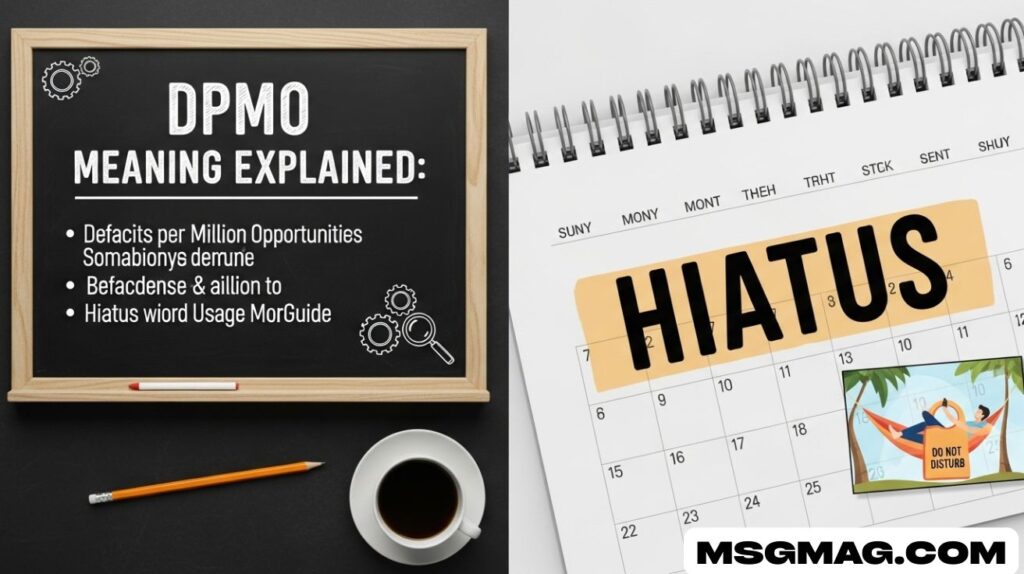
When you need to express frustration or set boundaries without sounding rude, there are many DPMO alternatives that fit different tones and situations. Choosing the right phrase allows you to maintain emotional control, avoid conflict, and communicate effectively.
1. “Please don’t test my patience.”
This is a polite and professional alternative. It conveys your limit clearly without being offensive. For example: “I’ve explained this several times. Please don’t test my patience.”
2. “I’m trying to stay calm here.”
This casual and emotionally honest phrase communicates stress while avoiding direct aggression. Example: “I’m trying to stay calm here, but this is frustrating.”
3. “Let’s not go there.”
A controlled and assertive phrase, perfect for stopping a conversation from escalating. Example: “I understand your point, but let’s not go there right now.”
4. “Don’t push it.”
Short, firm, and socially acceptable in most casual situations. Example: “You’ve repeated that three times; don’t push it.”
5. “That’s not helping.”
Professional and neutral, this phrase signals disappointment rather than anger. Example: “Bringing this up now is not helping.”
6. “Let’s stay respectful, please.”
Ideal for team chats, forums, or emails. Example: “We’re trying to move forward; let’s stay respectful, please.”
7. “I’ve reached my limit for today.”
Emotionally honest and gentle, communicates overwhelm without hostility. Example: “I’ve reached my limit for today; let’s continue tomorrow.”
8. “I don’t have the energy for this right now.”
Honest and empathetic, allows you to express emotional fatigue. Example: “I get your point, but I don’t have the energy for this right now.”
9. “Not the time, not the place.”
Assertive and situational, prevents inappropriate arguments. Example: “You want to argue now? Not the time, not the place.”
10. “I’d rather not get into this.”
Polite and conflict-avoiding, good for shutting down sensitive topics. Example: “Honestly, I’d rather not get into this right now.”
11. “Let’s not make this worse.”
Cautionary and compassionate, discourages escalation. Example: “We’re both tired; let’s not make this worse.”
These alternatives demonstrate expressing frustration in text without resorting to aggressive abbreviation.
Why Choosing the Right Alternative Matters
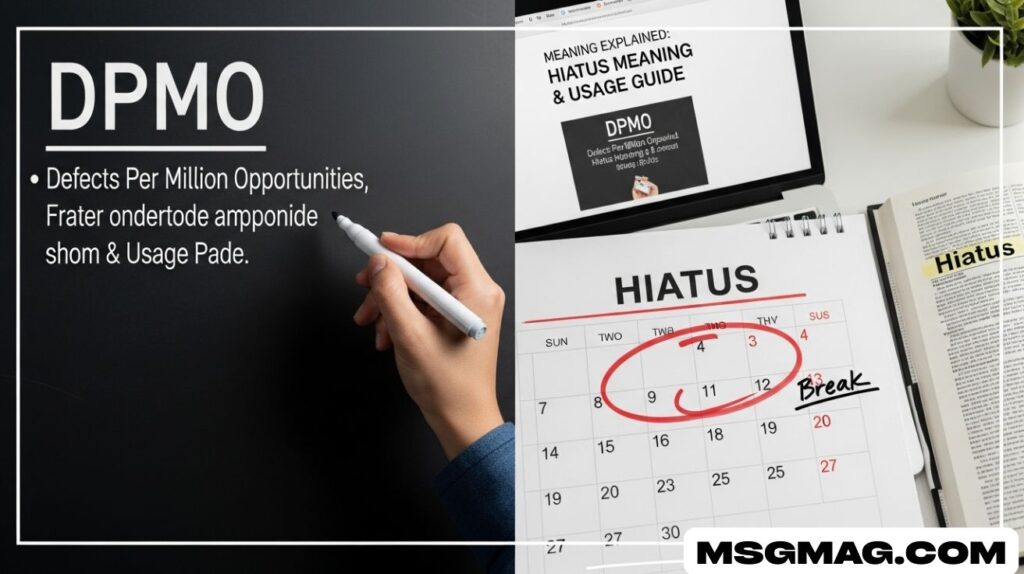
Choosing the correct phrase instead of DPMO can significantly impact your relationships, both personally and professionally. Using text communication abbreviations like DPMO incorrectly can make you appear quick-tempered, emotionally unstable, or disrespectful. On the other hand, using thoughtful alternatives helps protect your emotional peace, improve communication, and earn respect.
The hiatus meaning of DPMO emphasizes self-awareness. Recognizing when you are at your emotional limit and choosing appropriate words ensures that your message is clear and your relationships remain intact. Properly expressing boundaries with polite ways to say DPMO shows maturity and emotional intelligence.
Read Also : LMR Meaning (Hiatus Meaning): Complete Guide for Texting
The Psychology Behind DPMO: Why People Use It
At its core, DPMO emotional meaning is tied to human psychology. People often use it as a defense mechanism to quickly reclaim power in frustrating situations or set boundaries. The phrase allows the sender to signal stress or irritation while warning others to back off. Common underlying messages include “I need space,” “I’m not okay,” or “Please don’t make it harder.”
Understanding the emotional context of DPMO can help recipients interpret the message correctly and respond appropriately. While the phrase may appear aggressive, it often reflects vulnerability, fatigue, or a need for respect rather than pure anger.
DPMO in Pop Culture and Music
The abbreviation DPMO has also appeared in pop culture, particularly in music. British rapper Central Cee released a song titled “DPMO”, which uses the phrase to convey dominance, confidence, and a warning not to be messed with. In pop culture slang, this use emphasizes swagger, assertiveness, and emotional toughness.
However, how DPMO is used in pop culture should not always be mirrored in everyday conversation. While aggressive abbreviations may work in music or entertainment, real-life interactions often require softer, context-appropriate communication. Understanding DPMO meaning for social media posts versus personal or professional messaging is essential for maintaining relationships and avoiding conflicts.
Understanding DPMO: Beyond the Abbreviation

The DPMO abbreviation is often seen in texting and online conversations, but its meaning goes deeper than a simple warning. Literally, it means “Don’t Piss Me Off,” but in context, it can convey frustration, stress, or emotional exhaustion. Knowing the difference helps avoid misunderstandings.
In daily communication, DPMO in texting often appears in heated discussions or sarcastic exchanges. Recognizing how to use DPMO in a sentence appropriately allows for better clarity and prevents unintentional offense. Context and tone are key to ensuring the message is understood correctly.
The Emotional Context of DPMO
While the literal meaning of DPMO is straightforward, the hiatus meaning DPMO reveals the underlying emotional state. People often use it to signal they are overwhelmed, stressed, or need personal space, rather than purely expressing anger.
DPMO emotional meaning is particularly relevant in digital communication. Understanding this helps recipients respond empathetically, reducing conflict and improving dialogue. Emotional awareness ensures that texting or social media exchanges stay respectful and effective.
When Not to Use DPMO
Despite its popularity, there are situations where DPMO in social media or messaging is inappropriate. Professional emails, formal conversations, or sensitive topics are not suitable for this abbreviation. Using it in these contexts may damage relationships or make you appear unprofessional.
Knowing when not to use DPMO helps maintain respect and clarity. Instead, choosing professional alternatives to DPMO ensures boundaries are communicated without aggression, keeping workplace or formal interactions smooth and constructive.
Polite Alternatives to Express Frustration

There are many DPMO alternatives that communicate limits without sounding aggressive. Phrases like “Please don’t test my patience” or “I’ve reached my limit for today” convey emotional boundaries clearly and respectfully.
Using polite ways to say DPMO ensures conversations remain effective and non-confrontational. These alternatives are perfect for professional, social, or casual situations, helping maintain relationships while expressing genuine feelings.
DPMO and Texting Boundaries
Texting and online messaging require careful word choice. Texting boundaries and DPMO highlight the need to manage how frustration is expressed digitally. Misuse can escalate tension or create misunderstandings.
Learning how to use DPMO in a sentence appropriately strengthens communication skills. Being aware of emotional tone and context allows users to protect their peace while clearly expressing limits in digital conversations.
DPMO in Pop Culture and Music
How DPMO is used in pop culture reflects its popularity among younger audiences. Artists like Central Cee have used it to convey assertiveness and dominance in songs, adding to its social relevance.
However, applying DPMO meaning for social media posts in real-life professional or personal conversations requires caution. While pop culture glorifies aggressive slang, understanding the emotional and social context ensures respectful and effective communication.
FAQs
What does DPMO mean in text?
DPMO means “Don’t Piss Me Off” in text, used to show frustration or set a boundary.
What do you mean by DPMO?
It’s a slang abbreviation expressing anger, irritation, or emotional limits in casual conversations.
What is the origin of the DPMO slang term?
DPMO originated from informal texting and online chats as a quick way to warn someone not to provoke anger.
Is DPMO a good or bad thing?
It’s neutral, but often seen as aggressive; context and tone determine whether it’s appropriate or offensive.
Final Thoughts
DPMO meaning explained goes beyond a simple abbreviation. While it literally means “Don’t Piss Me Off,” its hiatus meaning adds depth, signaling stress, emotional fatigue, and a need for boundaries. Recognizing the right time and place to use DPMO in texting or online, and choosing alternative phrases for DPMO, ensures that your communication is effective, respectful, and emotionally intelligent.
Before sending a sharp message like DPMO, pause, consider the context, and select words that truly reflect your feelings. This approach helps you express yourself clearly, protect your peace, and maintain healthy personal and professional relationships. In the world of text slang DPMO, emotional awareness is the key to mastering conversations.

